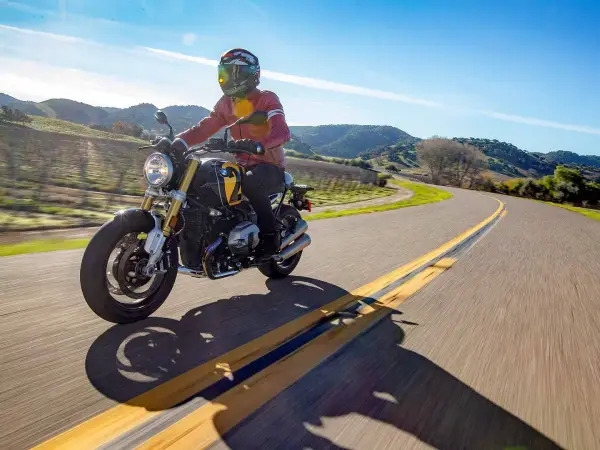Ever wondered why your helmet speaker in a Bluetooth motorcycle helmet doesn’t last as long as expected, even with a beefy battery? Modern helmet speakers like Cardo Packtalk or VIMOTO boast 1400mAh or higher capacities, yet often deliver just 13-24 hours of runtime. Factors like Mesh intercom, AI noise cancellation, and JBL audio drain power fast, limiting gains from bigger batteries. MotoMelody’s 2025 guide dives into why helmet speaker runtimes stagnate, using insights from Bluetooth motorcycle helmet tech and brands like Cardo and Sena. Ready to understand your helmet speaker’s battery? Let’s break it down!
- The Promise of Big Batteries in Helmet Speakers
- Why Bigger Batteries Don’t Mean Longer Runtime
- Comparing Helmet Speaker Battery Performance
- How to Maximize Helmet Speaker Runtime
- Choosing a Helmet Speaker with Battery in Mind
- MotoMelody’s Take on Helmet Speakers
- Conclusion: Smarter Choices for Helmet Speaker Batteries
The Promise of Big Batteries in Helmet Speakers
Helmet speakers in Bluetooth motorcycle helmets have evolved, with batteries growing from 500mAh in early models to 1400mAh in 2025 . You’d expect a 1400mAh battery to deliver days of runtime, like a smartphone. Yet, top helmet speakers—Cardo Packtalk Pro (13h), Sena 60S (17-24h), VIMOTO V10x (30h)—fall short. Why? Bluetooth speakers in helmets face unique challenges:
- High-Power Features: Mesh intercoms and AI processing eat power.
- Compact Design: Small size limits battery efficiency.
- Riding Conditions: Cold or heat impacts performance.
With the Bluetooth motorcycle helmet market set to hit $1.2B by 2030, understanding battery limits is key to choosing the right helmet speaker.
Why Bigger Batteries Don’t Mean Longer Runtime
Larger batteries should extend helmet speaker runtime, but several factors cap gains:
Power-Hungry Mesh Intercom
What It Does: Mesh intercom (e.g., Cardo’s DMC 2.0, Sena’s Mesh 3.0) creates a self-healing web for 15-30+ riders, auto-routing signals over 1.6-12km.
Power Drain: Constantly sending/receiving signals across multiple devices consumes 30-50% more power than Bluetooth intercoms.
Example: Cardo Packtalk Pro (13h) uses Mesh, draining its battery faster than VIMOTO XR (Bluetooth, longer runtime).
AI Noise Cancellation and Audio Processing
What It Does: AI noise cancellation (e.g., VIMOTO’s Witmem, Sena’s AI) filters wind/road noise, while JBL or Harman Kardon speakers deliver high-fidelity sound.
Power Drain: Real-time processing for noise reduction and audio tuning uses 20-30% of battery.
Example: Cardo Packtalk Pro’s 45mm JBL and noise cancellation cut runtime compared to basic Bluetooth speakers.
Compact Design Constraints
Challenge: Helmet speakers must fit tight ear spaces, limiting battery size and heat dissipation.
Impact: Smaller batteries (even at 1400mAh) are less efficient than larger ones in phones, losing 10-15% capacity to heat.
Example: Sena 60S’s 1170mAh battery yields 17h Mesh/24h Bluetooth, far less than a 1400mAh phone’s days-long life.
Environmental Factors
Cold Weather: Below 32°F/0°C, battery efficiency drops 10-20%.
Vibration/Heat: Riding generates heat and vibration, reducing battery lifespan.
Example: VIMOTO V10x’s 1400mAh battery performs better in mild weather than extreme cold.
Additional Features
Features: FM radio, OTA updates, voice assistants, and LED displays (e.g., Cardo’s app integration) add 5-10% power draw.
Example: Reso Pilot Pro’s crach detection and DuoSync Mesh increase consumption.

Comparing Helmet Speaker Battery Performance
Let’s examine top helmet speakers to see how battery capacity translates to runtime:
Cardo Packtalk Pro ($459)
Battery: 850mAh, 13h runtime.
Features: DMC 2.0 Mesh, 45mm JBL, crash detection, AI noise cancellation. Auto on/off to help manage battery comsuption better.
Why Limited: Mesh and safety features drain power, capping runtime despite decent capacity.
Best For: Safety-focused riders okay with charging daily.
Sena 60S ($369)
Battery: 1170mAh, 17h Mesh/24h Bluetooth.
Features: Mesh 3.0, Wave Intercom, Harman Kardon 40mm, AI noise cancellation.
Why Limited: Wave Intercom (cellular-based) and Mesh consume more power than Bluetooth.
Best For: Long-distance riders needing flexibility.
VIMOTO V10x ($179)
Battery: 1400mAh, runtime 20-30h but “nuclear” per users.
Features: Bluetooth SCC3.0, JBL speakers, Vitmem noise cancellation, DODO app.
Why Limited: Cloud-based intercom and JBL audio draw significant power.
Best For: Budget riders seeking value.
Reso Pilot Pro ($249)
Battery: 1950mAh, 18h runtime.
Features: DuoSync Dual-Band Mesh, camera pairing, AI noise reduction.
Why Limited: Hybrid Mesh and cam integration increase power use.
Best For: Tech-savvy groups.
Comparison Table
| Helmet Speaker | Battery | Runtime | Key Features | Price |
|---|---|---|---|---|
| Cardo Packtalk Pro | 850mAh | 13h | DMC Mesh, 45mm JBL, Crash Detection | $459 |
| Sena 60S | 1170mAh | 17-24h | Mesh 3.0, Wave, Harman Kardon | $369 |
| VIMOTO V10x | 1400mAh | 20-30h | Bluetooth, JBL, Cloud Intercom | $179 |
| Reso Pilot Pro | 1920mAh | 18h | DuoSync Mesh, Crash Detection | $249 |
How to Maximize Helmet Speaker Runtime
While helmet speaker batteries face limits, these tips can stretch runtime:
Optimize Intercom Use
Use Bluetooth Over Mesh: Switch to Bluetooth for small groups (e.g., Sena 60S’s 24h vs. 17h Mesh).
Limit Group Size: Smaller Mesh groups (5-8 riders) save power.
Adjust Audio Settings
Lower Volume: Reduce JBL/Harman Kardon output to save 5-10% battery.
Disable Noise Cancellation: Turn off AI processing when not needed or ride in quiet enviroment.
Manage Features
Turn Off Extras: Disable FM radio, OTA updates, or voice assistants during rides.
Use Wave/DuoSync Sparingly: Limit cellular-based intercoms (Sena, Reso) to save phone and headset power.
Protect Battery Health
Avoid Extreme Temps: Store helmet speakers in 50-77°F/10-25°C to maintain efficiency.
Charge Smart: Use fast charging (e.g., Cardo’s 2h full charge) but avoid overcharging.
Charge While Riding
Use Mounts: Cardo’s Air Mount (Pro/Edge) simplifies charging vs. Neo’s Click Mount.
Portable Banks: Carry a small power bank for long trips.
Choosing a Helmet Speaker with Battery in Mind
When picking a helmet speaker, balance runtime needs with features:
Solo/Short Rides: VIMOTO XR ($99) or Cardo Packtalk Neo ($299) offer sufficient runtime for casual use.
Group/Long Rides: Sena 60S (24h Bluetooth) or Reso Pilot Pro (18h) for extended comms.
Safety Priority: Cardo Packtalk Pro ($459) for crash detection, despite shorter 13h runtime or Reso Pilot Pro ($249) for 18h runtime.
Budget-Friendly: VIMOTO V10x ($179) for long-lasting 1400mAh and JBL audio.
Avoid These Pitfalls:
- Expecting phone-like runtime from helmet speakers.
- Choosing Mesh-heavy models (Cardo, Sena) for solo rides.
- Ignoring charging convenience (Neo’s mount vs. Pro/Edge).
MotoMelody’s Take on Helmet Speakers
At MotoMelody, we’re riders who geek out on tech. Helmet speaker batteries, like those in Cardo Packtalk, Sena, and VIMOTO, face power-hungry features that limit runtime gains. By understanding Mesh intercom, AI noise cancellation, and environmental impacts, you can pick the right Bluetooth motorcycle helmet intercom. Visit MotoMelody.com for reviews and tips to power your rides!
Conclusion: Smarter Choices for Helmet Speaker Batteries
Big batteries in helmet speakers don’t always mean long runtime due to Mesh intercom, AI processing, and design constraints. Cardo Packtalk Pro (13h) prioritizes safety, Sena 60S (24h) excels for long rides, and VIMOTO V10x ($179) offers value. Optimize your helmet speaker with smart settings and charging habits. Explore top Bluetooth motorcycle helmet picks at MotoMelody.com and ride longer! What’s your battery hack? Share below!


